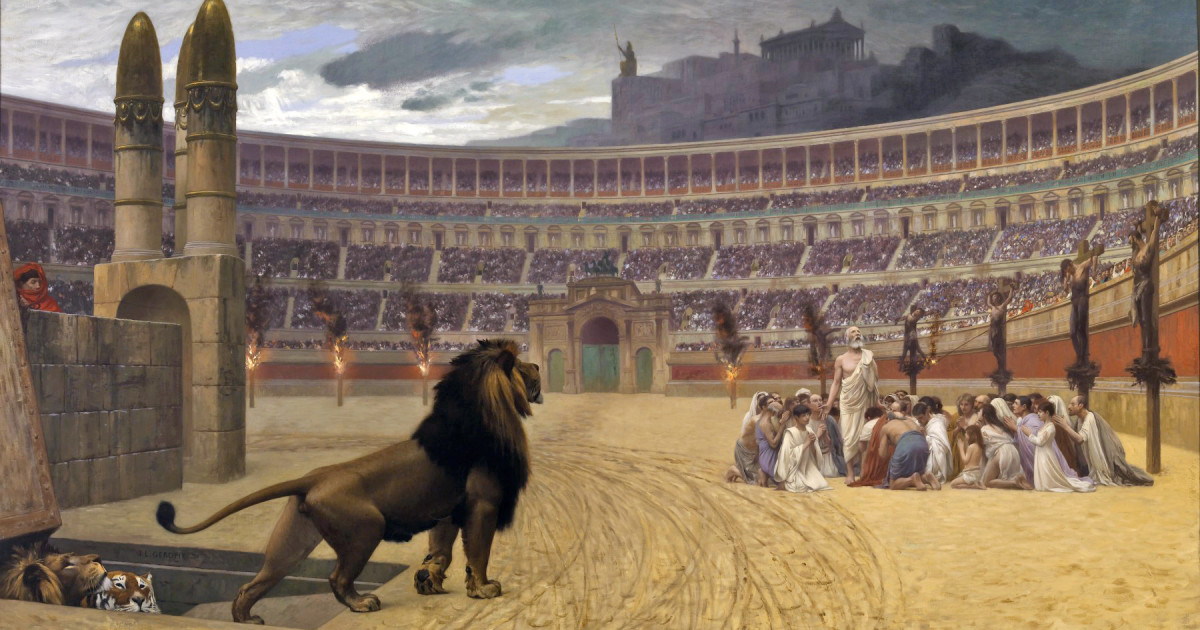One of the longings of the Christian heart is to hear our Lord tell us, “Well done, good and faithful servant. Enter into the joy of your Lord.” We desire to feel the pleasure of the Lord’s approval of our work. On the heels of this approval, we anticipate reward: entering into the joy of our Lord. There is nothing wrong with that. God promises reward for faithfulness, so we should expect it and desire it.
But what happens when the Lord says, “Well done, good and faithful servant. Enter into more of the suffering and death of your Lord?” This is Jesus’s message to the angel of the church in Smyrna. The angel and church had stayed faithful through tribulation in which they experienced abject poverty (Rev 2.9). They had endured the blasphemy of the Satanic synagogue of the Jews. More than likely, this had been going on for several years. Day-in and day-out they were being squeezed by trouble, and it was costing them livelihoods and societal ostracization. Yet they were staying strong.
One might think that the Lord seeing all of this would say, “Alright. Enough is enough. You have been faithful through all of this, so I am coming to relieve your suffering. Well done! Enter the joy of your Lord.” Instead he comes and, following his commendation of their perseverance, he says, “Do not fear the things you are about to suffer. Behold, the devil will throw some of you into prison, that you may be tested, and for ten days you will have tribulation. Be faithful unto death….” “Suffer? Prison? Be faithful unto death? That’s the immediate future and what I get for enduring what I have endured already? Jesus, you’re telling me to buckle up because it’s about to get worse?”
Not a very cheerful message to preach to a suffering and hurting congregation. But it was reality. In his time before the cross, Jesus told his disciples that they would endure tribulation. These were the birth pains of the new creation (Matt 24.8). In order for the new creation established in Jesus’s death and resurrection, the church will have to follow her Lord in death. The blood of the saints will be the seeds of the new creation. They must desire this as much as our Lord does and be willing to give as he did.
This is the way history works. Jesus told them so when he introduced himself to the church. He is the first and the last, the one who was dead and has come back to life. The two descriptions work together. Being the first and the last means that Jesus is not a mere historical figure (though he is a historical figure). Being the first and last means that he is the source and destination of all of history. History is because he is. All things were created by him, and all things are moving to culminate in him (Rom 11.36; Eph 1.10). In him all things consist (Col 1.17).
This history has a shape determined by the one who is the first and last. The way history moves–first and last–is shaped by the one who died and came back to life. History’s shape is death then life. More specifically, die with Christ and then live with Christ. We don’t live and then die. We die and then live. Those who seek to hold on to their lives will lose them in the second death. Those who lose their lives with and for Christ will live, not fearing the second death (cf. Rev 2.11; also Matt 16.25).
The choice is death or death. We will all die. When and with whom you die will determine whether not it culminates in life or a second death.
Jesus doesn’t always reward faithful pastors and churches immediately with peace and prosperity. He doesn’t always rescue us from the death that we face. Sometimes he says, “Buckle up! It is about to get worse.” But he does promise us that all of this is only for “ten days,” a relatively short time of testing compared to what is to come. As we stay faithful through testing and death, the reward of the crown of life is coming (Rev 2.10).
We may not face the same situation as the Smyrnan Christians or even many of our family members around the world who live under the threat of physical torture and death. We may be tested by death in other ways. What are the things that we are holding on to that we think, “I will never let go of this. I will never let this die.”? Everything outside of Christ about which we have this attitude is an idol. You are looking to find life in the creation and not the Creator. You’re wanting to live now and die later. Whether whatever that thing is goes away or not, you must die to it so that you can find life. Jesus may let you keep it, or he may take it way. Yours is to accept the death that Christ demands of all those who follow him. When follow him in death, you will certainly follow him in life.















